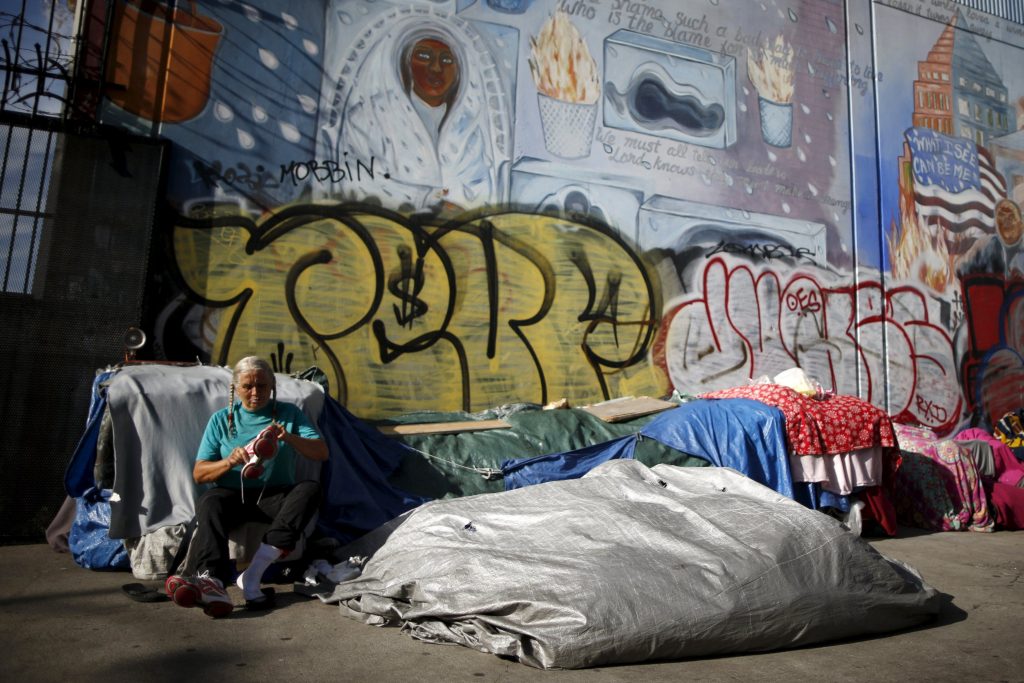At the dawn of creation, the Spirit of God hovered over the face of the earth’s deep waters.
I was thinking about this image from the Book of Genesis on June 4, as I was praying and preparing to celebrate Pentecost.
Two days earlier, our government had announced that it was pulling out of the so-called Paris Agreement on climate change — an action that provoked deep concern everywhere about the future of the earth we live on.
Concern about global warming and climate change is real. The U.S. bishops have long supported the need for prudent action and dialogue about the impacts of climate change, especially as they affect the poorest and most vulnerable people.
But there remain sharp debates — scientific, technological, economic and political — about how severe the crisis is and how best to address the challenges created by carbon dioxide emissions.
For example, Pope Francis, in his encyclical “Laudato Si’” strongly criticizes the “cap and trade” policies used by states like California and also the federal government. The pope says buying and selling “carbon credits” is “a ploy” the wealthy use to pursue their economic self-interests and their habits of “excessive consumption.”
Many authorities believe the world is already well on its way toward the goal of a global economy that will be far less dependent on carbon-generating energy sources.
They point to growing numbers of “green” jobs, declining costs for renewable energy sources and continued innovations in battery and other energy storage technologies.
These are times for prayer and thoughtful action.
“Lord, send out your Spirit and renew the face of the earth,” we pray in our Pentecost liturgy.
Last week, as the news was coming out about the Paris Agreement, we also received a report here in Los Angeles about the dramatic increase in the numbers of our brothers and sisters who are homeless.
Each night in the county of Los Angeles — nearly 58,000 people have no place to call home.
As with the debate about climate change, authorities have different opinions about the causes of homelessness and how best to respond.
Personally, I am worried about the quality of life here in Los Angeles. Every day it seems the distance grows wider between those who have what they need for a dignified life and those who do not.
In many of our neighborhoods we now see makeshift “tent cities” being established on sidewalks and boulevards and other public spaces.
It is sad to see people living in these tents and all around them to see the signs — clothing, furniture, bikes and toys — that once these people had a home, but now they do not.
I worry that we are getting accustomed to these sights in our city. We cannot allow ourselves to accept a Los Angeles where sidewalks become permanent residences for our neighbors.
The earth is our common home and everyone on earth deserves a place that he or she can call “my home.”
For me, the housing crisis is a reminder that in God’s creation, there is an ecology of the human person and an ecology of the natural environment.
We cannot think about the one without the other. As God spoke and the universe was created, he breathed his Spirit of life into every person.
God made this earth, not for its own sake, but to be a home for the human family. The good things of creation are meant to be shared, developed and used for the good of all of his children.
And God intends us to be cocreators with him, cooperating with him to carry out and complete the work of his creation.
Human life and human nature must be protected and cared for — our rights and dignity, the needs of our bodies, minds and spirit.
The natural environment must also be protected and cared for. We are not put here to consume what we need and throw away what we do not, with no regard for the health of our communities or the needs of future generations.
The lack of affordable housing is directly related to “the human ecology.” This is true in the poorest nations of the world, but sadly it is also true here in the wealthiest.
Again, we need prayer and thoughtful action.
In “Laudato Si’,” Pope Francis remembers these powerful words from St. John Paul II: “The Holy Spirit can be said to possess an infinite creativity, proper to the divine mind, which knows how to loosen the knots of human affairs, including the most complex and inscrutable.”
In these challenging times, when we face so many complicated issues, let us turn to his Spirit. May he inspire us to do what is right and guide us to find creative pathways to renew the face of the earth.
Pray for me this week and I will keep praying for you.
And may our Blessed Mother Mary, queen of all creation, help us to build a culture of care and solidarity.
You can follow Archbishop Gomez daily via Facebook, Twitter and Instagram.

